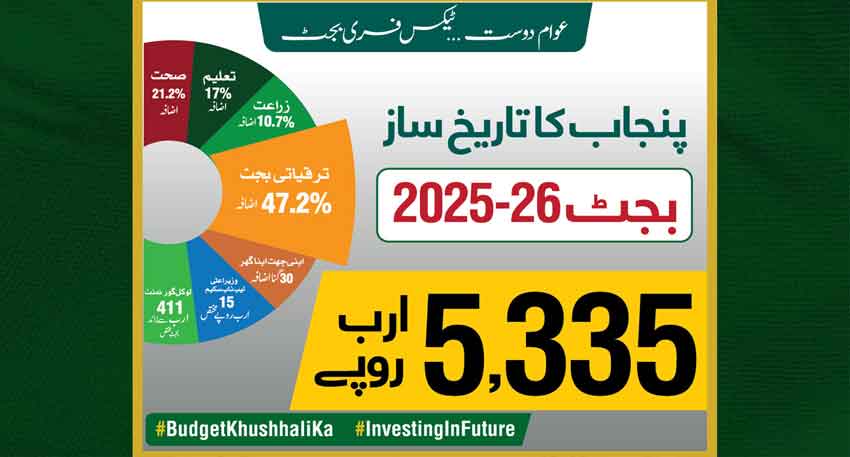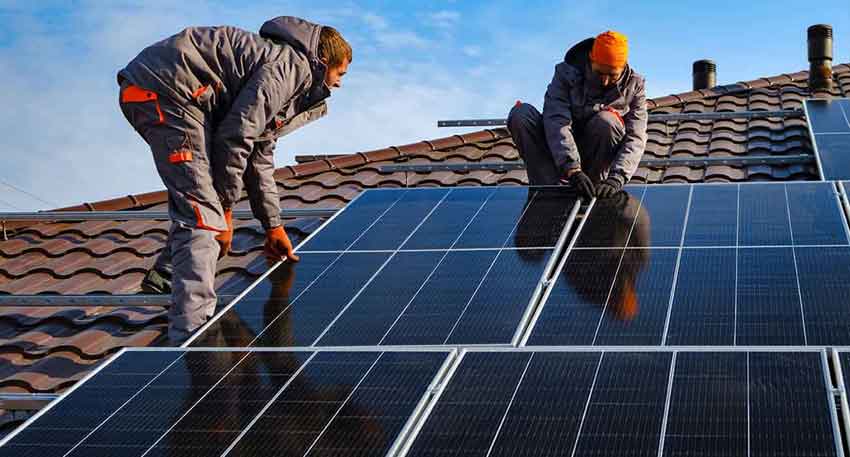
With no new taxes imposed, this tax-free and people-friendly budget focuses entirely on development, welfare, and improving the quality of life for every citizen. It stands out not just as the largest budget in the province’s history, but also as a shift toward inclusive growth and long-term human development.
A major highlight of this budget is the unprecedented allocation of Rs1,240 billion for development projects—proof of the government’s commitment to progress. For the first time, 27% of the total budget has been allocated for health and education, marking a historical move toward uplifting public services. The health sector has received Rs630.5 billion and education Rs811.8 billion. Massive investments have also been made in community development (Rs411.1 billion), police (Rs210.1 billion), housing and public health (Rs245.7 billion), roads (Rs120 billion), transport (Rs141.5 billion), and agriculture (Rs129.8 billion).
Special initiatives reflect the government’s practical vision. These include Rs50 billion for the “Apni Chhat, Apna Ghar” housing scheme, Rs79.5 billion for free medicine, Rs46 billion for electric buses, Rs35 billion for the Ramadan relief package, and Rs40 billion for ration cards. Youth and education programs like the CM Laptop Scheme (Rs15 billion), Honnahar Scholarship Program (Rs15 billion), and Rs40 billion for schools have also been prioritized. Lahore and Punjab-wide development programs have been allocated Rs85 billion and Rs25 billion respectively.
Healthcare services are being transformed at every level. Rs14.5 billion has been set aside for the Nawaz Sharif Cancer Hospital, Rs9.4 billion for Jinnah Institute of Cardiology, and Rs6 billion for Children’s Hospital Rawalpindi. Health insurance (Rs25 billion), dialysis (Rs8.6 billion), and critical treatment programs like children s heart surgery and transplant operations are all funded in this budget.
In a groundbreaking move, the minimum wage has been increased from Rs37,000 to Rs40,000, benefiting workers across Punjab. Additionally, the government has directed all wage payments to be digitized, ensuring transparency and timely payments for laborers. This digital transformation is part of the CM’s broader vision for modernizing systems and making governance more efficient.
The budget also includes 100 new projects and the construction of 700 roads, with 12,000 kilometers of roads set for development and expansion—another record in the province’s infrastructure growth. Environmentally, the government has launched Pakistan’s first comprehensive climate policy and allocated funds for the geo-tagging of water-scarce regions, afforestation under the “Plant for Pakistan” campaign, and other sustainability efforts.
Read more: ADB pledges $800m to support Pakistan’s economic reforms
Chief Minister Maryam Nawaz has assured the public that despite it being the biggest development budget in Punjab’s history, there has been no financial scandal. “Every rupee belongs to the people and we are accountable to Allah,” she emphasized. Transparency and integrity remain the foundation of her governance.
This budget is more than a set of numbers. It is a roadmap to transformation. From schools and hospitals to climate action and infrastructure, Punjab is being reshaped into a province of opportunity, hope, and prosperity. Maryam Nawaz’s leadership is setting a new governance model that could inspire all other provinces. Her focus on inclusivity, digital reforms, and sustainable development clearly reflects a brighter, more equitable future for every citizen.


